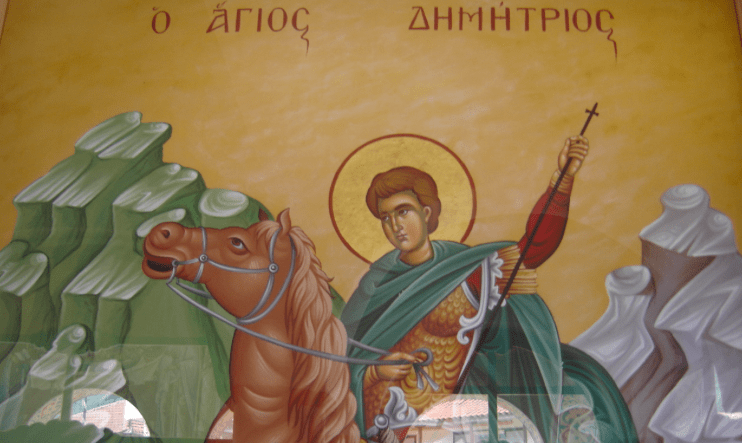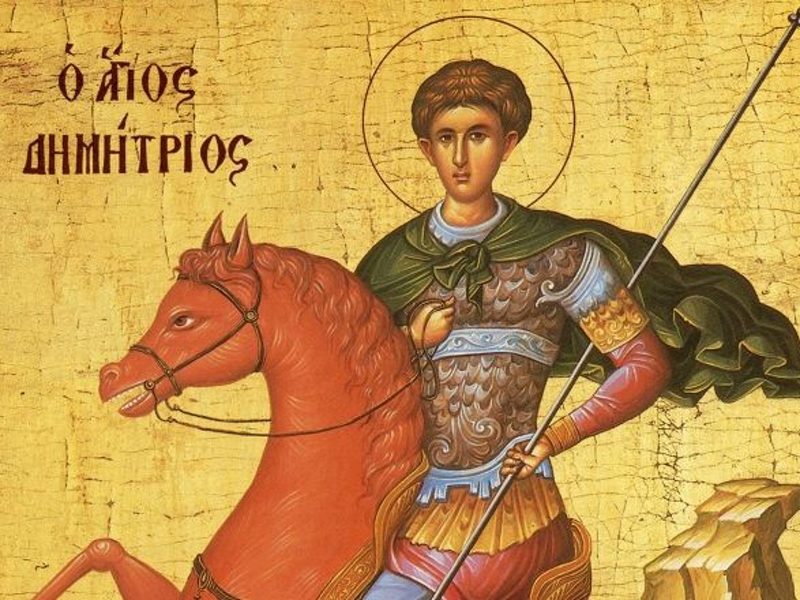
October 26 is the Feast Day of Agios Dimitrios, who was born in Thessaloniki, in 270 AD.
He came from a wealthy family and because he was athletic in appearance and heroic in spirit, he became a high-ranking officer in the Roman Army at a very young age. (This is why he is depicted in Byzantine icons in military dress, either standing or riding a horse.) He considered himself a soldier of Christ first, and a military soldier second. He spent most of his time as a devout missionary, preaching the Gospel at secret meetings and converting pagans to the Christian faith.
At one of these meetings, he was captured and placed in front of Emperor Maximian, who wanted to learn the truth about the conversions. Agios Dimitrios proclaimed his faith by saying: "...only in Christ do I believe." With that proclamation, Maximian ordered that Saint Demetrios be sent to prison and subjected to the cruellest tortures.
Even though Agios Dimitrios was imprisoned, he did not stop preaching the gospel to those who came to see him. In jail, he was visited by his follower, Nestoras. Nestoras was a man of small stature and had come to ask for his beloved teacher's blessing to fight in the upcoming gladiator games. The emperor had decided to use the games as a duel between Christianity and paganism by challenging any Christian to a fight against the athletic giant, Leo.
With the blessing of Agios Dimitrios, Nestoras fought and killed Leo. Enraged at the loss of his favourite gladiator, the emperor commanded that Nestoras be beheaded on the spot. Recognising that Agios Dimitrios was the inspiring power behind Nestoras, the emperor ordered that Agios Dimitrios be executed by spear on October 26, 306 AD Christians buried the body of Agios Dimitrios at the place of his execution and because of the beautiful scent that emanated from his tomb, he was named Mirovlitis or "The Myrrh Gusher".
The most ancient icons of Agios Dimitrios may be found in his temple in Thessaloniki where he is the patron saint. This is not just because he was born and died there, but because the people believe it was his intervention that saved the city during many attacks by Slavic nations, the Bulgarians, Arabs, Saracens, and others.

